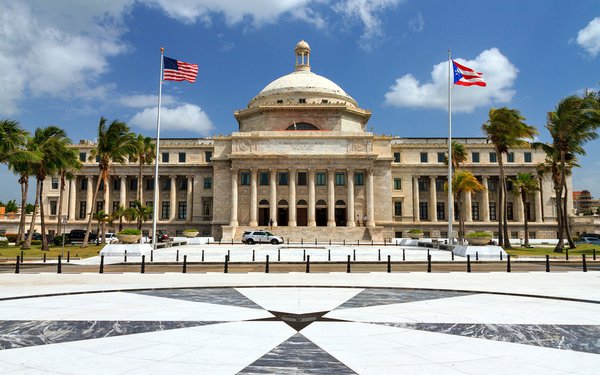
A new Puerto Rico law criminalizing false statements
about emergencies like COVID-19 is unconstitutional, two journalists claim in a lawsuit brought Wednesday.
“Plaintiffs reasonably fear that their investigative reporting about the
COVID-19 public health emergency, as well as future reporting on other emergencies, could expose them to criminal prosecution,” radio host Sandra Rodriguez-Cotto and independent journalist
Rafelli Gonzalez-Cotto allege in a complaint brought in U.S. District Court in Puerto Rico.
The pair adds that the law has already “chilled their reporting and caused them to
self-censor.”
They are represented by the ACLU, which is seeking an order blocking the authorities from enforcing the Puerto Rico law.
The measure, passed in April, makes it a
crime to use social networks or “mass media” to transmit “false information with the intention of creating confusion, panic or collective public hysteria, regarding any proclamation
or executive order decreeing a state of emergency or disaster or curfew.”
advertisement
advertisement
Violators face fines of up to $5,000 and six months imprisonment.
The law runs afoul of the First
Amendment for numerous reasons, the ACLU argues. Among others, it's too broad, doesn't take into account whether journalists knew whether information they shared was “false,” and
criminalizes speech based on its content.
In general, the First Amendment prevents the government from criminalizing non-commercial speech, even when factually incorrect -- although there are
exceptions, such as for speech that is defamatory.
The ACLU says in its complaint that Rodriguez-Cotto and Gonzalez-Cotto “make every effort to confirm the accuracy of their
reporting.”
But, the complaint continues, “inadvertent inaccuracies are inevitable even in the most thoroughly vetted reporting.”
The journalists also allege that the
threat of prosecution has made their sources “less likely to share important information with them,” because their sources fear prosecution.
“One of Mr. González
Cotto’s sources informed him that other scientists are afraid that the government would take legal action against them if it were revealed that they disclosed information about the COVID-19
public health emergency in Puerto Rico,” the complaint states.